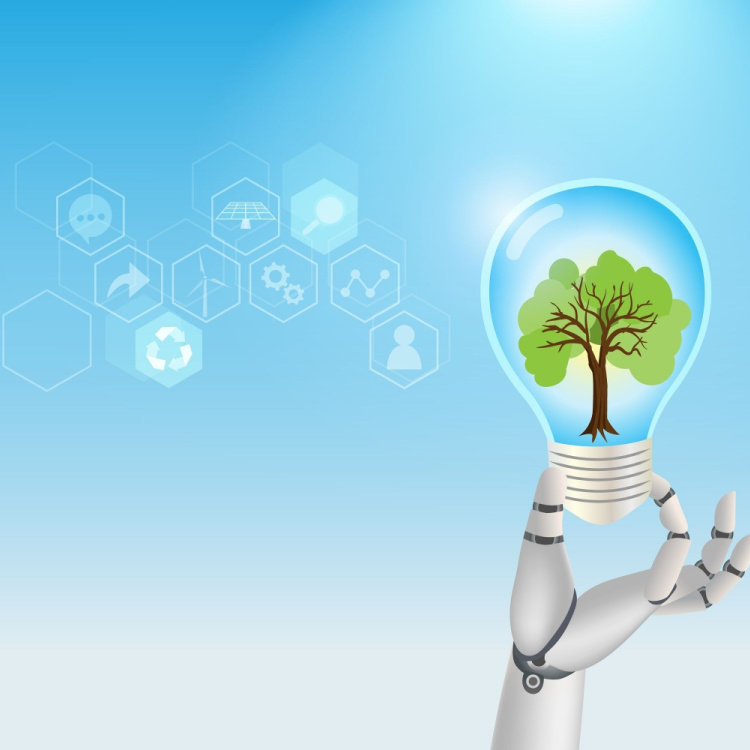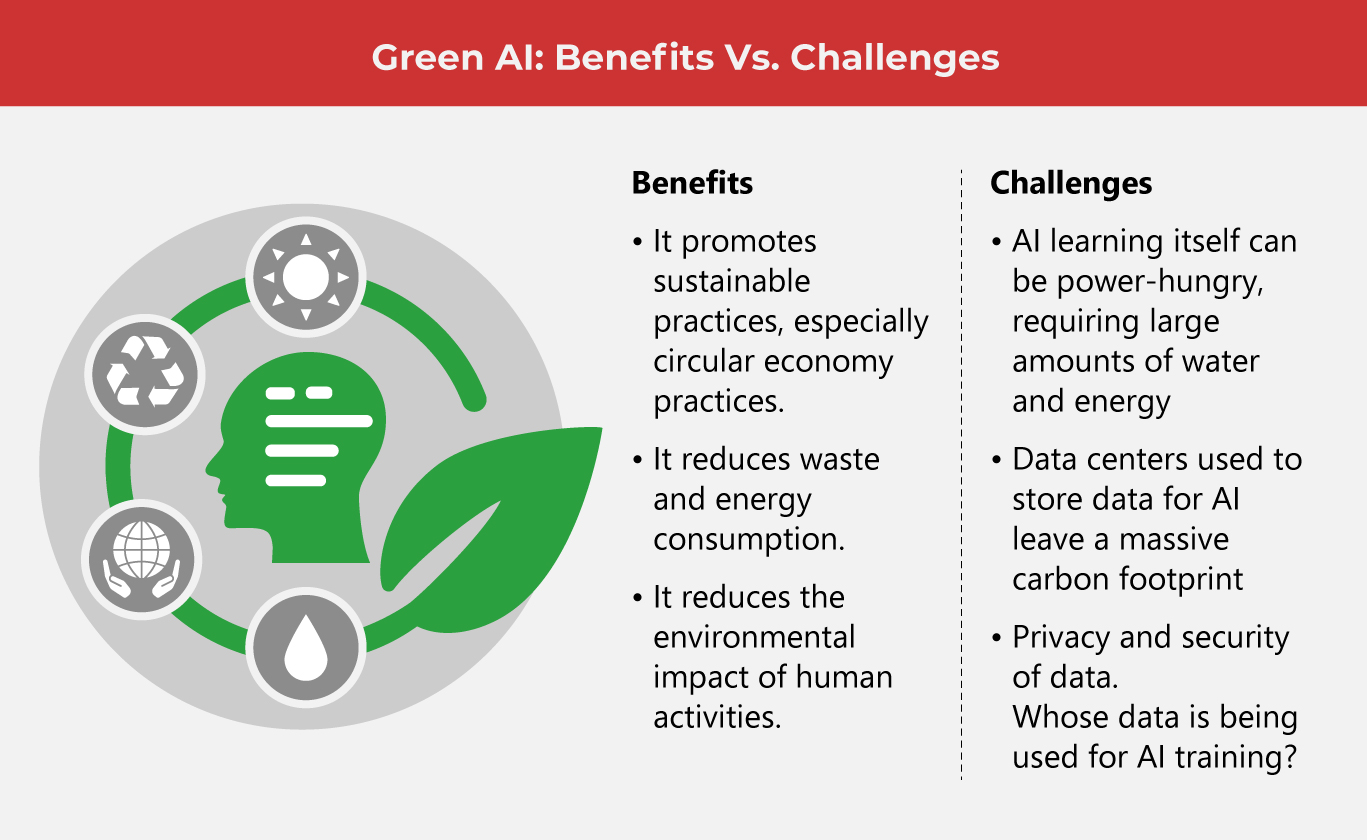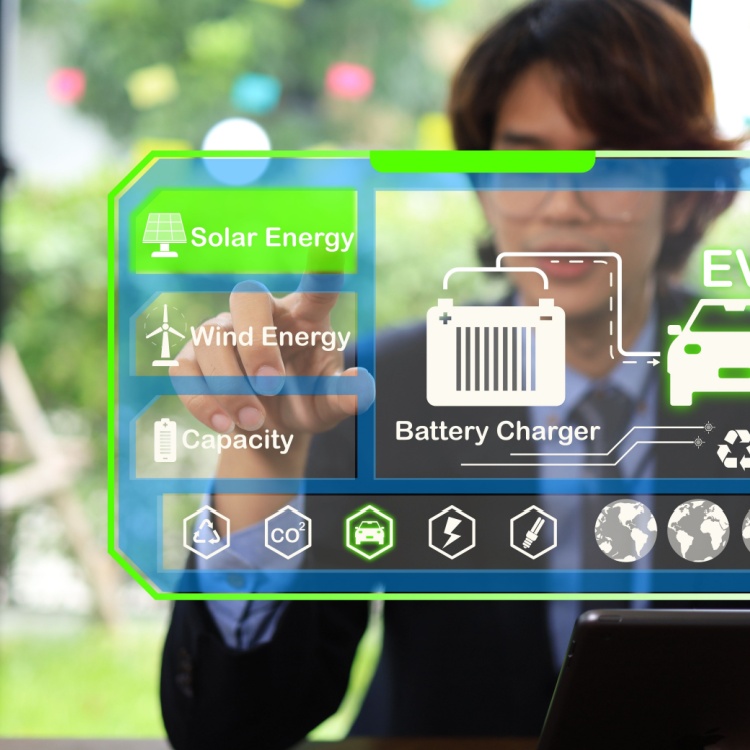What Is Green AI and How Do We Benefit?

Green AI refers to several applications of artificial intelligence technology that directly address environmental issues and concerns. The question is: can green AI solve climate change, or will it worsen it?
It’s an emerging branch of AI technology that aims to reduce the environmental impact of technology and human activities, as well as mitigate climate change.
According to an article from Ecomena.org, green AI involves “designing and developing algorithms that are environmentally friendly or sustainable”. Its goal is to optimize energy in the most efficient way, to reduce greenhouse gas emissions, and to promote sustainability practices.
Green AI holds a large potential in addressing sustainability problems, especially for policy-makers and businesses around the world. On the other hand, AI also poses its own environmental challenge. Let’s look at both the potential for good, and the problems it could bring. Then, let’s see if a balance can be made.
(Also Read: How Circular Manufacturing Can Save The World)
Green AI’s Potential for Good
In an interview, Sabu Mathai, Research Director with the Gartner Supply Chain Practice said that about two-thirds of companies today de-prioritize sustainability for resilience.
Many companies put sustainability on the back burner in favor of resilience. The reasons vary: from a lack of bandwidth to a perception that sustainability does not really matter, or is less important than a company’s resilience.
Mathai said that companies must strike a balance between sustainability and resilience or they risk getting left behind. Businesses must realize that sustainability and resilience converge, and doing nothing to strike this balance can prove disastrous in the long run.
When discussing sustainable business practices, technology becomes part of the equation. How to reduce the company’s carbon footprint, how can the company reach its ESG objectives, how can we optimize energy consumption, how can we make our systems more efficient and environmentally friendly? Businesses that want to survive and become more resilient need to keep asking themselves these questions.
Incorporating green AI could be part of the solution. Mathai mentions integrating sustainability into business practices as one of his recommendations for business leaders to adopt a more “build-in” sustainability.
Businesses looking into closing gaps in the supply chain may want to look into green AI, as this could prove to be a strong and effective tool in moving towards a more circular economy.
Another important application of green AI lies in energy optimization. Businesses could optimize the energy their buildings consume by integrating smart energy systems. AI algorithms could sense changes in energy requirements and adjust accordingly.
It may also be applied across companies’ manufacturing systems and factories, making production more efficient, and responsive to potential causes of delay.
Another area where green AI can be applied is in the field of agriculture. Using AI algorithms can improve crop yield, reduce water waste, and promote sustainable farming methods. Food security is an issue that may be addressed by the application of green AI in agriculture.
In urban settings, green AI can help with vehicle traffic flow problems, and improve waste management.
Environmental safeguarding is one of the biggest applications of green AI. Data gathering, making processes more efficient and timely to address disaster response in an area affected by floods, for example, can be life-changing.
Challenges of Green AI
On the other hand, while AI can optimize efficiency in many ways, it also relies on massive amounts of data to be processed.
AI systems need this to “learn”, and for the AI to be trained quickly, data centers have to work around the clock. These data centers gobble up a lot of water and energy to operate.
MIT says that the Cloud now has a larger carbon footprint than the entire airline industry. “A single data center might consume an amount of electricity equivalent to 50,000 homes,” according to this article from Forbes.
Further, there’s also the matter of the quality of data, not only its quantity. AI relies as much on the quality of data to be trained efficiently and make good decisions. This can be tricky, especially for areas where data infrastructure is not as robust or healthy.
It also raises the question of privacy and security. Who owns the data that is being fed to train the AI? Many ethical issues are raised when it comes to AI, mainly because of data privacy, security, and proprietorship. Where is the data being used to train AI coming from?
Third, when it comes to green AI, there must be expertise not only in AI and machine learning but also in environmental science. This may be a tall order, but as the reality of an impending climate disaster looms ever larger, the demand for this expertise becomes more urgent.
Striking a Green Balance
In her TED talk, Sims Witherspoon, Climate Action Lead for DeepMind asks, “Can AI Solve the Climate Crisis?”. She appeals to business leaders to ask the right questions: along with asking what the steps we could take are, ask how to do the steps.
Part of those steps is asking to collaborate and work with groups who are open to sharing data, and who are willing to integrate the technology into their companies to further train the technology to be better.
Cooperation and collaboration is a simple, yet complex key to getting green AI to work for us.
It has been said by many other experts that AI is not a silver bullet. It can be a very powerful tool, yes, but it cannot solve all the problems man has made for himself and the environment.
Humans can train an AI to make the most efficient decisions based on the data we feed it, but sometimes the most efficient decision won’t be the best for humans. We need to remember to place more important values such as empathy, compassion, and kindness over efficiency for AI to benefit humankind.
As one of the Top 20 EMS companies in the world, IMI has over 40 years of experience in providing electronics manufacturing and technology solutions.
We are ready to support your business on a global scale.
Our proven technical expertise, worldwide reach, and vast experience in high-growth and emerging markets make us the ideal global manufacturing solutions partner.
Let's work together to build our future today.
Other Blog




